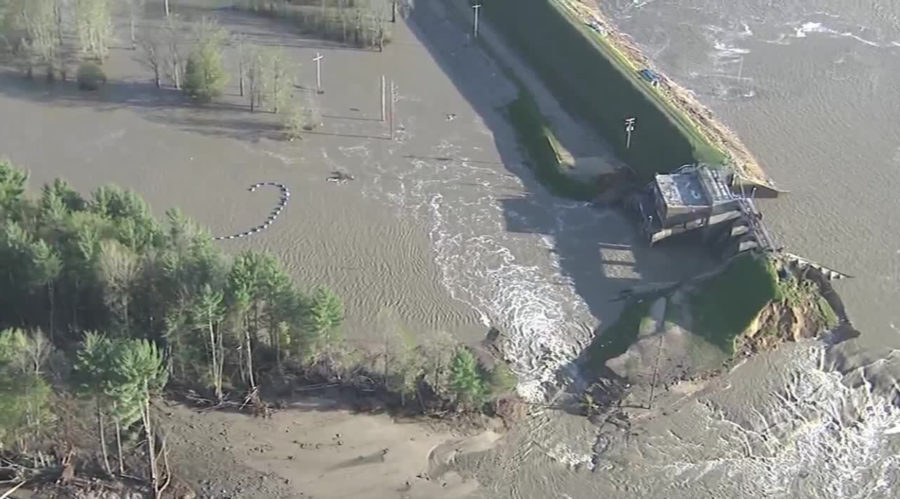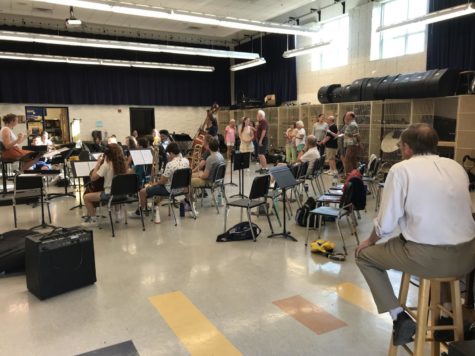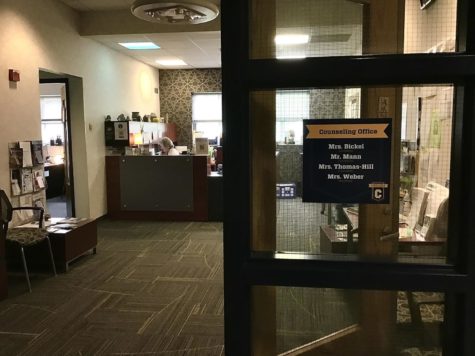Opinion: Hope and Hypocrisy at COP26
The first week of negotiations came to a close at the twenty-sixth annual Conference of the Parties (COP26) climate summit in Scotland. In light of this, students are increasingly concerned about climate change.
A survey was put around CHS on November 2. The survey asked for students’ opinions on climate change in the context of the COP26 summit.
The number of students who were concerned about climate change was overwhelming. “62.5% of surveyed students were very concerned about climate change.”
The majority of students are unified in their message about climate change. Although that can seem very concerning, this gives collective bargaining power for the upcoming generation. Young people must use their voices and ballots to vote in positive climate action for the world and the country.
Shockingly, many of the students surveyed share the view that we humans are the biggest threat to our future.
An overwhelming amount of student responses included humans as the biggest threat to humans, over nuclear warfare, our dependence on fossil fuels, our response to Covid, and the leaders of the world themselves.
One student response pointed to the “400 private jets that were used to get all the leaders to the climate conference.”
Matt Finch, of the Transport and Environment campaign group, shows on average private jets used by world leaders “emit two tons of CO2 for every hour in flight.” With an average of 4 hours round trip, this is a huge release of CO2. Private jets were found to be “the worst way to travel by miles” for the environment.
The hypocrisy of our world leaders can be difficult to digest at times. It’s important to remember that although our leaders use the most environmentally damaging methods of transportation, if nothing is said and leaders are not held accountable, then nothing will change. Leaders are making half-baked promises to their constituents and it’s imperative that young people show them that’s not okay.
Students overwhelmingly support legislation to protect our environment. The takeaway from the student survey was simple: be more strict on big corporations, and change the status quo.
When asked What world leaders should do about Climate Change, students responded with great ideas. Examples included “making more of an effort to reduce the emissions of gases” along with adding “limits in emissions from large corporations,” and making “stricter laws to protect nature.”
The BBC relayed the message from the COP 26 summit that “More than 100 world leaders have promised to end and reverse deforestation by 2030, in the COP26 climate summit’s first major deal.”
We must be loud in our activism against weak compromises, and we must be loud in our criticism of our world leaders who hypocritically damage the world to attempt to save it.
Students know how severe climate change is, but they don’t know the severity to which climate change is catastrophic.
Forty percent of surveyed students said they think about climate change daily. Even so, over half (52%) of surveyed students did not know that by the year 2050, a quarter of all people living on Earth will not have access to clean water.
According to a study by World Mapper, which got its data from the United Nations Department of Economics and Social Affairs, “In 2050 the world population is estimated to have reached 9.8 billion.” According to that number, an estimated 2.45 billion people would be without access to clean water by 2050.
The information that human impact is behind climate change makes the steps we take towards the future all the more important and all the more significant. There are undeniable numbers, estimates, and studies showing the future we risk having if we don’t act now.
Our descendants could be one of those 2.45 billion people without access to clean water. For future generations’ sake, we must act now to change our current trajectory.
Your donation will support the student journalists of Chelsea High School. Your contribution will allow us to purchase equipment, cover our annual website hosting costs, and write more stories for you to read!





